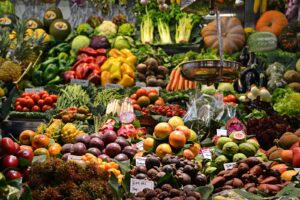Who creates food waste?

What are the categories of food waste?
-
1. Uneaten food and food preparations wastes
2. Uncooked and expired food
3. Flowers, rotten fruits and vegetables
4. Teabags, eggshells and coffee grounds
Different sectors in the retail and consumption stages of the food chain contribute to immense food wastage.
Who creates the most food waste?
Unsurprisingly, the highest contributor to food waste in the country.
Restaurants, cafes and other food services waste £3.2 billion worth of fresh meals every year. Naturally, businesses will not intend on wasting food on purpose but habits such as over-preparing food, improper storage of food and produce, over-buying ingredients and poor stock management all contribute to food waste. In addition to this, hospitality businesses also are responsible for throwing away leftovers and uneaten food they serve to their customers.
Butchers
Food waste is created in the meat industry in a variety of ways, including waste from slaughterhouses, butcheries and meat processors. According to research, the UK throws away 34,000 tonnes of beef every year.
Food wastes in butcheries emanate from bones, blood, internal organs and unused fat, expired or unsold stock. Improper disposal of meat-based food waste is a threat to animal and human health. In the UK, butcheries should adhere to Environment Protection Act and Animal by-Products Regulations 2013.
Bakeries
Bakeries are another huge contributor to food waste in the country. In the UK, consumers typically only want to buy bread that has been baked that day otherwise they fear it will be stale. For this reason, many bakeries throw away a high volume of bread and baked goods due to overproduction or lack of demand. Food waste in this sector includes bread, dough, icing, cakes, sugar, flour and other confectionery products.
Bread is among the top three most wasted foods in the UK. About 1.2bn edible slices of bread are thrown away each year.
Households
It is important to highlight, food waste is not just created by commercial businesses. Many domestic households do not realise how much food waste they create. Statistics show that families throw away about 22% of their weekly shopping contributing to 50% of food waste in the country. How is this food wasted? Lack of proper meal planning, impulse buying, poor storage and cooking too much are common culprits.
Proper food waste management
The best way of managing food waste is by reducing food waste in our homes and businesses. Households, for example, could create a meal plan at the start of each week to ensure they don’t overbuy or forget about fresh produce. Businesses could similarly put more effort into their stock management and food storage plans.
Even when you aim to reduce food waste as much as possible, however, there are instances when food waste is inevitable. If you have food waste you need to be collected, get in touch with our team. Our company strives to offer reliable, quality and affordable services to ensure your business meets the highest hygienic standards. We have all the equipment needed to cater for the food waste needs of the different sectors. Contact us today for efficient and tailor-made services.
Learn more
What is low carbon food?
Have your waste collected
Get a fast FREE quote for your waste collection 0800 211 83 90
- Free quote within 1 hr
- Any type of waste
- FREE bins and delivery
- We cover all of the UK